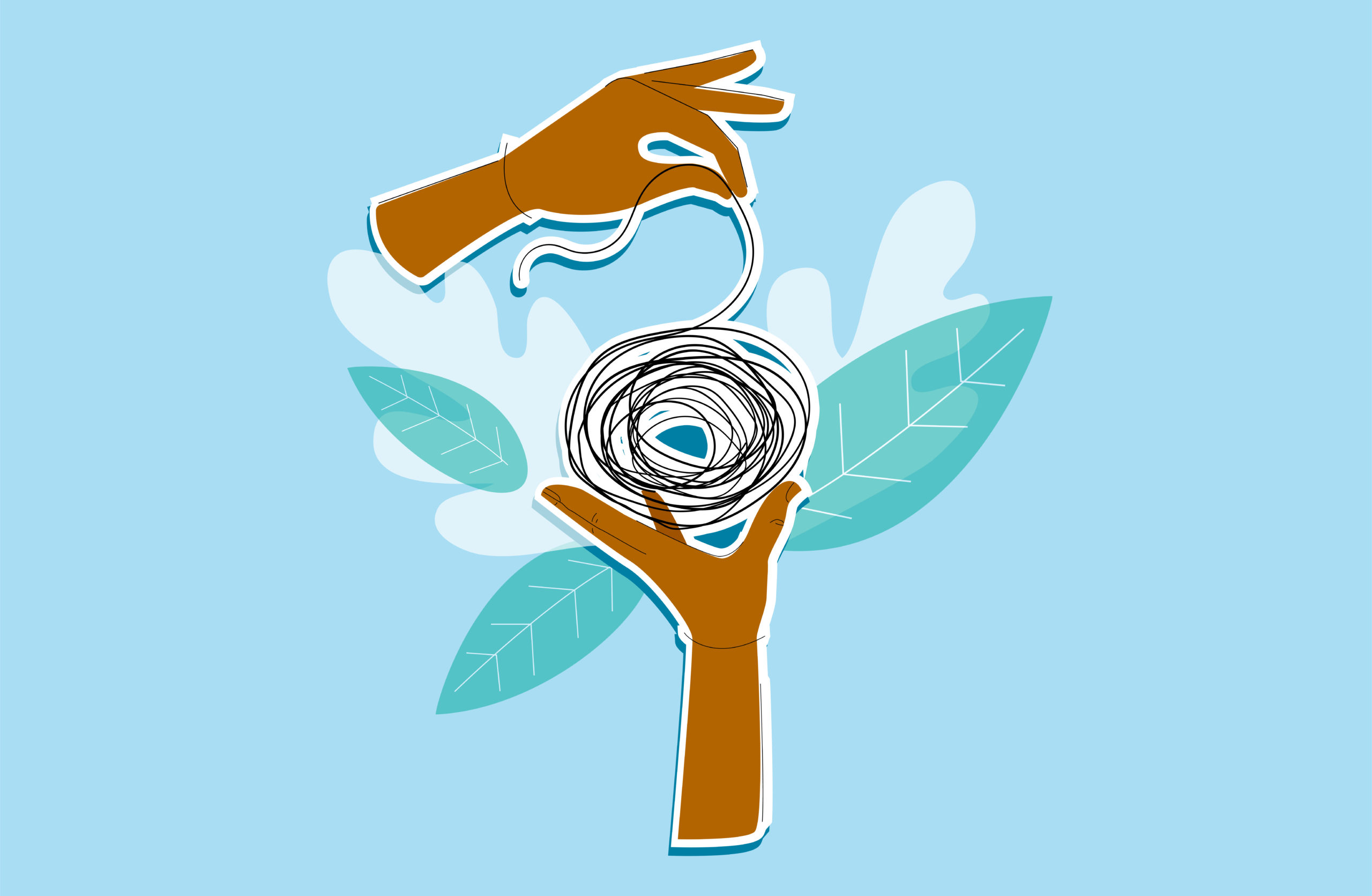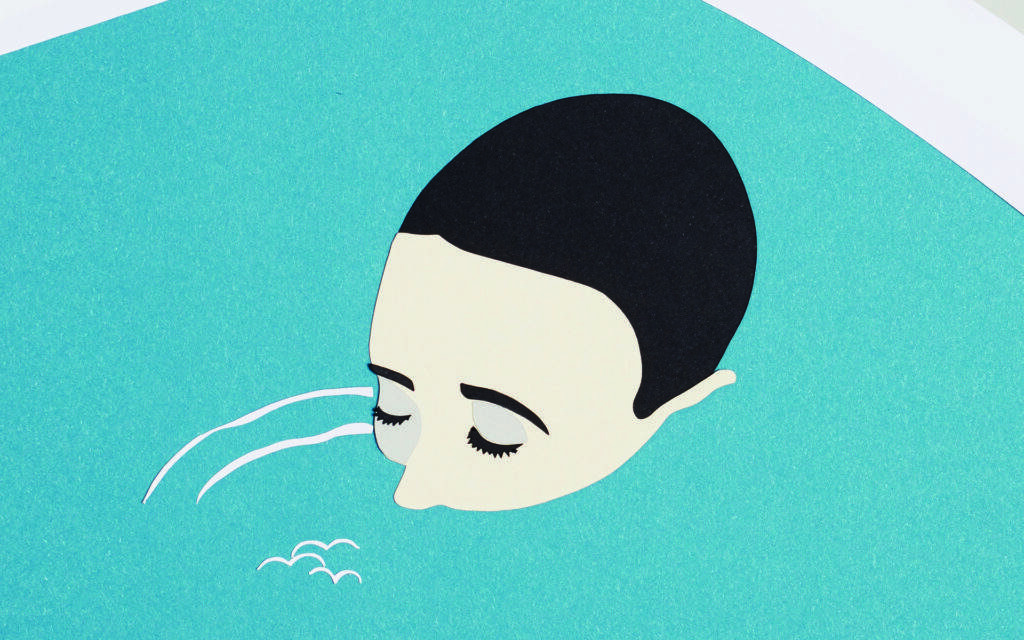Unwinding Your Anxiousness Behavior Loop

I don’t find out about you, however I’m somewhat uninterested in studying the identical ideas again and again about how you can relax and destress. I’m uninterested in attempting to decelerate my respiratory when my chest feels heavy, and query the worst-case eventualities operating round my head.
That’s why psychiatrist Judson Brewer’s new guide Unwinding Anxiousness is so refreshing. Sure, it has some ideas—however they don’t come till a lot later within the guide. The truth is, his complete level is that ideas alone gained’t assist these of us who wrestle with nervousness.
Brewer reveals how nervousness exists contained in the habits that make up our on a regular basis lives, and habits are sticky. They gained’t go away simply because we inform ourselves to breathe—as a result of, as loopy because it sounds when speaking about nervousness, our mind is attracted to those habits as a result of they create some sense of reward.
Implementing ideas and instruments skips an necessary step, Brewer argues. Earlier than we are able to attempt to change something, we’ve to spend a while observing our anxiety-related habits. Solely then—by exhibiting our mind viscerally how unrewarding these habits are—can we transfer to really creating new ones and getting out of our nervousness loops.
Unwinding Anxiousness provides a three-step course of that can assist you do precisely that, backed up by Brewer’s in depth behavior analysis. Whereas many well-being books can really feel overwhelming, his strategy is reassuring in its simplicity however totally different sufficient to really feel prefer it simply would possibly work.
The 1st step: Map out nervousness habits
Should you wrestle with nervousness, it’s seemingly that nervousness has change into a behavior for you, writes Brewer. Lots of our habits have developed to assist us scale back stress or fulfill emotional wants, he explains, even when they don’t all the time profit us long-term. Our habits exist in nervousness loops that include a set off, a habits, and a end result. For instance:
Set off: Really feel anxious
Conduct: Eat one thing candy
End result: Be distracted from nervousness
Generally nervousness can set off a behavior loop, however it can be the end result in a behavior loop:
Set off: Really feel unmotivated at work
Conduct: Learn information
End result: Really feel anxious concerning the state of the world
However probably the most pernicious anxiety-related behavior is that this fundamental sample, which many people fall into, the place nervousness reinforces itself:
Set off: Really feel anxious
Conduct: Fear (ruminate on what’s mistaken, what may go mistaken, and so on.)
End result: Really feel extra anxious
What reward may we probably get out of a self-perpetuating nervousness loop? Effectively, Brewer explains, the act of worrying can typically really feel good—or at the very least higher than simply sitting with our nervousness. Worrying typically (hardly ever) permits us to provide you with options, which makes it appear productive; we expect we’re fixing issues. A few of us are afraid we’ll be unprepared for the long run if we don’t fear, and fear may give us a way of management over the state of affairs, even when all we do is go again and again the identical fears.
In one in every of Brewer’s research (presently underneath peer overview), turning into conscious of fear behavior loops made folks much less anxious—and, for docs, decreased their burnout and cynicism. However mapping out your habits is simply step one.
Step two: Work together with your mind’s reward system
As Brewer explains, our mind shops a “reward worth” for various folks, locations, and issues we encounter. The extra rewarding our mind thinks a habits is, the stronger the behavior round will probably be.
However reward values can change into skewed or outdated. For instance, we’d have developed a ardour for cake as an anxious teen—however in maturity, we now discover ourselves in a queasy sugar coma after three slices.
“The one sustainable strategy to change a behavior is to replace its reward worth,” writes Brewer. Which means taking a contemporary have a look at how a behavior is affecting us now. And we have to do that again and again, every time we repeat the behavior in our each day life, till our mind updates its reward worth and stops being drawn to the behavior.
What does this imply in observe?
When you’ve recognized your habits that assist nervousness, you should be conscious once they happen. Should you’re anxious and also you begin worrying concerning the future, make a psychological be aware; observe the tightness in your chest, the lump in your throat, how little you get carried out at work that afternoon.
The advantage of this strategy is that moments of tension change into a possibility to study your self, not one thing to be afraid of, and never a failure in your quest for Zen. (Self-judgment, apparently, appears to go hand in hand with nervousness.)
You probably have hassle being conscious of habits in actual time, you may as well look again in your day or your week to see the results of a selected habits. In case your nervousness loop made you snap at your associate, how did that really feel? Quite than analyzing it, simply attempt to re-experience it in your physique.
Over time, Brewer suggests, our mind will naturally change into disenchanted with our nervousness habits with out us having to make use of a lot willpower, permitting extra space for brand new habits to type.
Step three: Create new habits
This step is the place most different recommendation begins: the wholesome habits and behaviors that we wish to have interaction in. However it is smart that there isn’t a lot room for these new behaviors till our brains detach from the previous ones.
Brewer suggests a wide range of mindfulness-related behaviors that you possibly can insert into your behavior loops when a set off arises, lots of which can be acquainted to you already:
- Curiosity and mindfulness: Quite than judging your self for being anxious, or getting obsessed about the place your nervousness is coming from, simply get curious. What does it really feel like, and the place? How does it change? Brewer even recommends saying “Hmmm!” out loud to your self, to encourage that sense of curiosity.
- Respiration: Tune in to the respiratory sensations in your physique. Breathe into locations the place nervousness reveals up, and breathe out nervousness. See how issues change.
- R.A.I.N: This can be a mindfulness observe the place you Recognize and loosen up into the current second; Accept and permit it to be there; Investigate your bodily sensations, feelings, and ideas; and Note what is going on.
- Noting: This can be a observe of labeling what experiences are predominant in your thoughts second to second, together with any of your senses (listening to, contact, sight), pondering, or feeling.
- Loving-kindness: The observe of sending type, caring ideas to folks, together with your self, and feeling that sense of heat in your physique.
To strengthen these habits, Brewer explains, you’ll be able to apply methods from step two—however this time, as an alternative of observing the detrimental results, you observe how good it feels in your physique to be curious or generate loving emotions.
Brewer is a behavior knowledgeable—a lot of his analysis has targeted on smoking and consuming issues—and though his guide is about nervousness loops, the general framework may apply to many habits in our lives. His insights reveal why so lots of our good intentions to train, meditate, and in any other case self-improve don’t translate into motion. Brewer’s guide offers us the instruments to work with our brains, slightly than always feeling like we’re preventing in opposition to ourselves.
This text initially appeared on Better Good, the net journal of UC Berkeley’s Better Good Science Heart, one in every of Conscious’s companions. View the unique article.
The concept of reconnecting with the skin world proper now might be traumatic and overwhelming. Discover these 5 guided meditations for softening emotions of anxiousness and calming panic.
Learn Extra
Elisha Goldstein, psychologist and founding father of the Conscious Residing Collective, provides seven each day practices to assist us really feel calm and keep grounded in unsure instances.
Learn Extra
- Elisha Goldstein
- Could 8, 2020
Conscious’s Content material Director Anne Alexander talks with neuroscientist, psychiatrist, and mindfulness knowledgeable Dr. Judson Brewer.
Learn Extra
- Anne Alexander
- March 15, 2020



